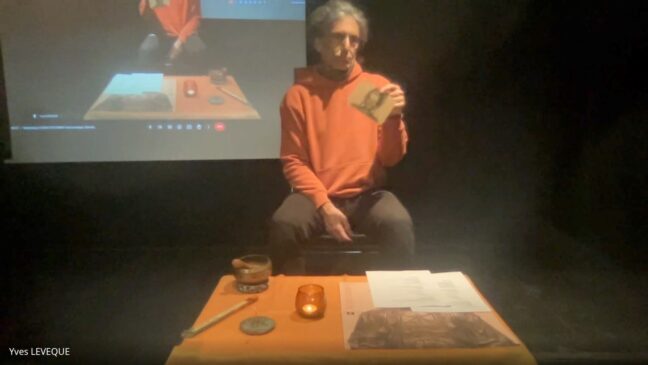The essential prerequisite for the organization of the workshops traced in the PHANDI project lies in the establishment of a calm, respectful and secure environment preserving the privacy of each person.
This is indeed a whole process of establishing mutual trust, through the adaptation of different contexts of verbal and non-verbal communication.
Clarification of roles
As this is an approach without medical pretensions, managed by non-specialists, it is appropriate to clarify the intentions, situations and roles of each person beforehand by answering the following questions:
- Is the workshop adapted to the psychological situation of the participants? We strongly recommend prior individual interviews specifying the context of intervention and its limits… which may lead to the identification of certain particularly fragile situations to be directly referred to professionals.
- clarify the status thought by the initiator of the process: does he imagine himself as a caregiver? facilitator? mediator? or simple facilitator? We highly recommend the latter option
- what is the status of the contents. What workshops are certainly not in our eyes: lessons / group work with a facilitator with privileged skills and/or rights / an artistic competition space
The notions presented above may require a long work of awareness and appropriation, which it is up to each person to assess.
Confidentiality, mutual respect
In order to create a space of trust conducive to emotional expression, we strongly recommend specifying at the start of each session:
- that what is shared should not leave the confines of the room
- the principles of respectful communication inspired by notions present in NonViolent Communication (empathetic listening, observation/judgment distinction, clarification of needs, etc.)
- the notions of good group communication: egalitarian arrangement in a circle, management of speaking, moderation (see sociocratic speaking circles),
- holding moments of centering at the start of the session
- the formalization of closing times
Quality of presence and attendance
All tutorials lend themselves to individual and group formats. In the case of a collective approach, we strongly recommend setting aside time in advance to accept the rules mentioned above, and regularly reminding yourself of this at the start of the session.
All tutorials may only last one session. Regular sessions should be offered in order to open up the possibility of registering expression processes over time.
Durations, collective/individual approach
The workshops presented in PHANDI last on average two hours, between preparing the reception area and tidying it up at the end of the session (which will benefit from being shared by all participants)
This duration must be clearly specified before the sessions are held, such as the need to be available for their entirety.
Space management
- particular care will be taken as much as possible to create a calm and intimate atmosphere, by means of arrangements encouraging introspection (silence, lights, decoration, perfume)
- you will obviously be asked to turn off cell phones
- the choice of a place far from daily sources of agitation can be important (office, place of passage)
Verbal/Non-verbal Management
We were well aware that the European framework of the project, and the choice of English as the working language, risked being very limiting.
This is why the instruction in the first stage of researching workshops was to favor a non-verbal dimension, making it possible to limit the instructions for putting into practice as much as possible.
The essential time for verbal expression which benefits from closing projects can be facilitated by emotional vocabulary lexicons
Autor :

